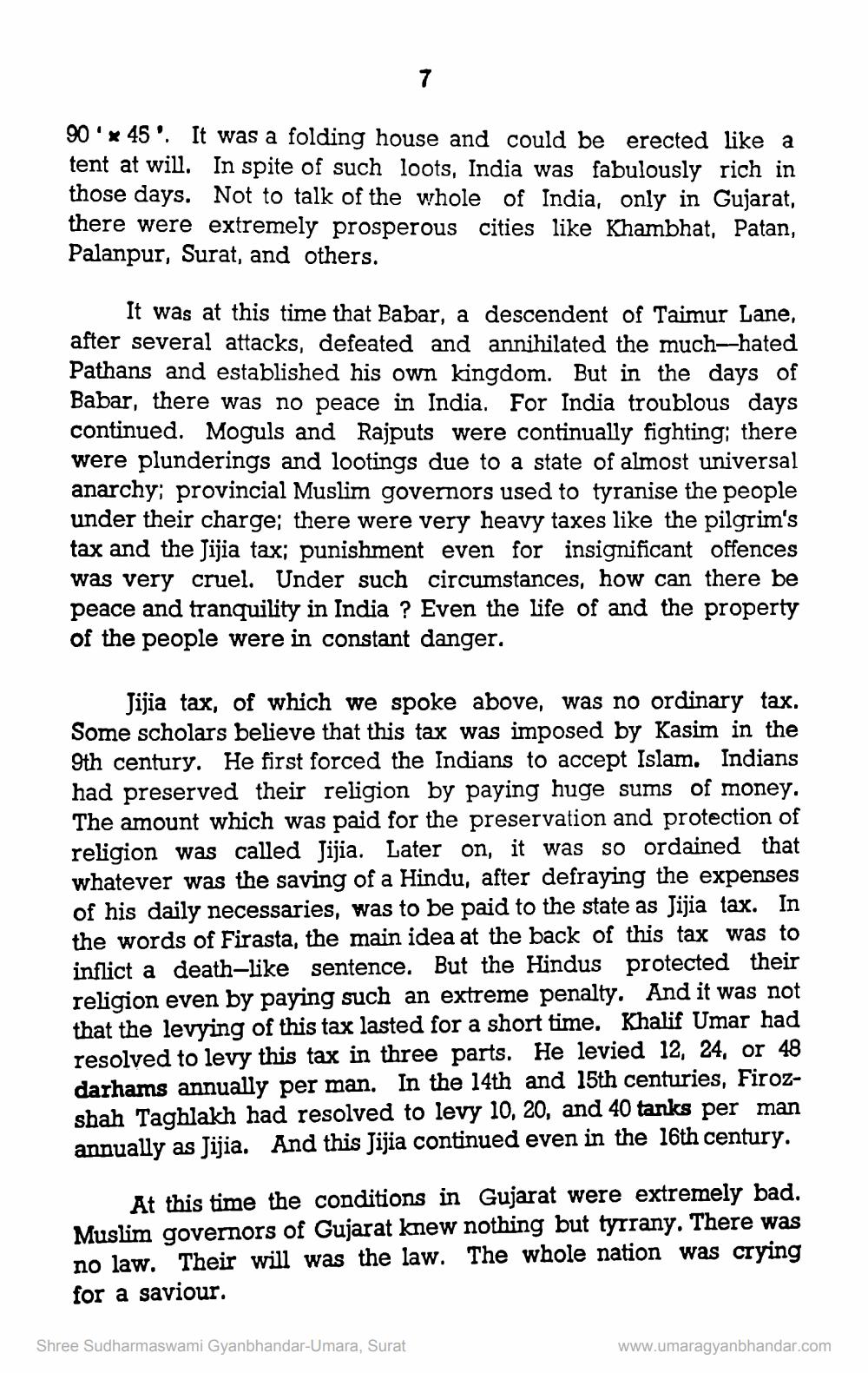________________
90' 45'. It was a folding house and could be erected like a tent at will. In spite of such loots, India was fabulously rich in those days. Not to talk of the whole of India, only in Gujarat, there were extremely prosperous cities like Khambhat, Patan, Palanpur, Surat, and others.
It was at this time that Babar, a descendent of Taimur Lane, after several attacks, defeated and annihilated the much-hated Pathans and established his own kingdom. But in the days of Babar, there was no peace in India. For India troublous days continued. Moguls and Rajputs were continually fighting; there were plunderings and lootings due to a state of almost universal anarchy: provincial Muslim governors used to tyranise the people under their charge; there were very heavy taxes like the pilgrim's tax and the Jijia tax; punishment even for insignificant offences was very cruel. Under such circumstances, how can there be peace and tranquility in India ? Even the life of and the property of the people were in constant danger.
Jijia tax, of which we spoke above, was no ordinary tax. Some scholars believe that this tax was imposed by Kasim in the 9th century. He first forced the Indians to accept Islam. Indians had preserved their religion by paying huge sums of money. The amount which was paid for the preservation and protection of religion was called Jijia. Later on, it was so ordained that whatever was the saving of a Hindu, after defraying the expenses of his daily necessaries, was to be paid to the state as Jijia tax. In the words of Firasta, the main idea at the back of this tax was to inflict a death-like sentence. But the Hindus protected their religion even by paying such an extreme penalty. And it was not that the levying of this tax lasted for a short time. Khalif Umar had resolved to levy this tax in three parts. He levied 12, 24, or 48 darhams annually per man. In the 14th and 15th centuries, Firozshah Taghlakh had resolved to levy 10, 20, and 40 tanks per man annually as Jijia. And this Jijia continued even in the 16th century.
At this time the conditions in Gujarat were extremely bad. Muslim governors of Gujarat knew nothing but tyrrany. There was no law. Their will was the law. The whole nation was crying for a saviour.
Shree Sudharmaswami Gyanbhandar-Umara, Surat
www.umaragyanbhandar.com




